The grandmaster title is the highest honor a chess player can attain, next to the world championship title. Over 600 million people worldwide play chess, but the total number of grandmasters is less than 2000. This statistic shows that achieving the title of grandmaster is no small feat.
The body responsible for awarding the title of a grandmaster to chess players is the World Chess Federation, known as FIDE (Fédération Internationale des Écheсs).
FIDE is responsible for awarding different titles to chess players, the highest being the grandmaster title. The title is usually held for life by a player and is only revoked in rare circumstances like cheating. Other titles include the international master title and the FIDE master title.
Russia has the highest number of grandmasters, with the total number of Russian grandmasters being 256.
The youngest grandmaster in history is the American grandmaster Abhimanyu Mishra (born February 5, 2009), who got the title at 12 years 4 months and 25 days, beating the previous holder, beating the previous holder, Russian grandmaster Sergey Karjakin‘s record, which had stood since 2002.
The oldest living person to have held the title was grandmaster Yuri Averbakh. He held the title till he passed away at the age of 100.
Becoming a grandmaster is no easy task. It takes hard work and dedication. In this article, we will discuss 11 steps on how to be a chess grandmaster.
How to be a Chess Grandmaster
- Start Playing From a Young Age
- Devote Time to Study Chess
- Build a Solid Opening Repertoire
- Improve Your Tactical and Strategic Skills
- Improve Your Calculation Skills
- Get Better in the Endgame
- Have a Fighting Attitude
- Analyze Your Games
- Get a FIDE Membership
- Participate in Local and International Tournaments
- Get 3 Norms and a 2500 FIDE Rating
Start Playing From a Young Age
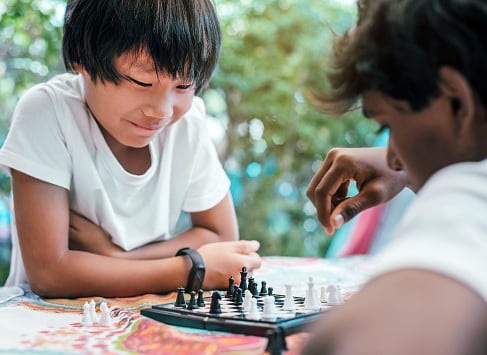
Children who start playing chess early are more likely to be better at the game than adults. This is because a child can assimilate information at a very young age. And like other arts like drawing or music, chess takes years to master.
Therefore, a child who starts playing at a young age will have a headstart over older individuals.
In addition, young children between the ages of five and eight can absorb tactics, strategies, and other fundamental principles needed to succeed at chess.
The vast majority of grandmasters started playing the game at a very young age, and as they grew, so did their understanding of the game.
Devote Time to Study Chess
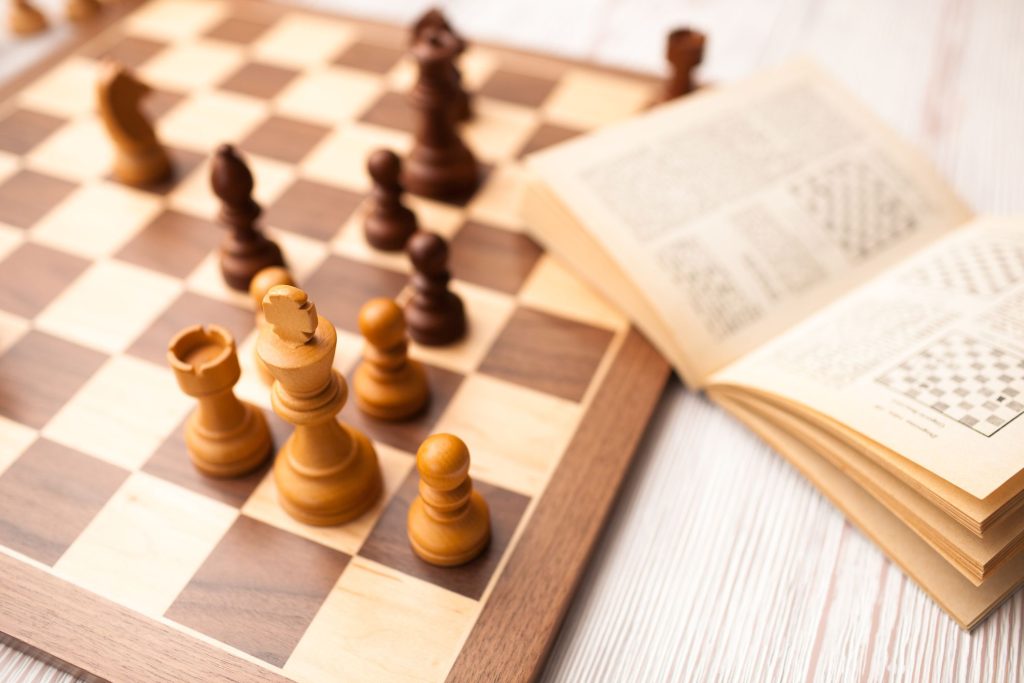
Chess, like any art, requires study. Studying is one of the most straightforward paths that shows how to be a chess grandmaster.
One of the reasons there are very few grandmasters in the world is that many people do not devote time to studying chess. They usually find it boring and give excuses about how hard it is to become a chess grandmaster.
The reality is that one can not become a grandmaster without hard work. It takes a lot of hard work and devotion to study chess and train hard. However, when a player puts in the work by studying well, they improve their chess, become very strong players, and eventually attain the coveted title of grandmaster.
Studying chess can be done by reading chess books, practicing chess puzzles, and watching instructional videos on how to improve at chess.
There are many facilities available for players that want to study chess. For example, you can visit the library, browse the available chess books, or surf the internet for educational resources.
While devoting time to studying chess is not an easy task, it is a bridge that has to be crossed by anyone willing to become a chess grandmaster.
Build a Solid Opening Repertoire
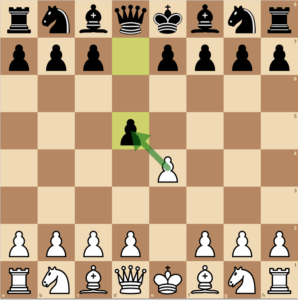
The opening is the beginning of a chess game. It usually starts with the first move made by the player with the white pieces, up until castling occurs.
Before a player can play the middlegame and endgame properly, they need to have achieved a good position from the opening. When the opening is not correctly played, you will have a lot of difficulties in the middle game and will end up losing the game.
The only way to ensure you play the opening correctly is to build a solid opening repertoire. An opening repertoire consists of a series of chess openings a chess player uses in their games. There are lots of chess openings in existence. Therefore it is crucial that you have two or three different openings in your arsenal.
Here, you can find chess openings for white and black pieces. Learning how to become a chess expert requires you to have a solid opening repertoire that you can employ in your games.
Improve Your Tactical and Strategic Skills
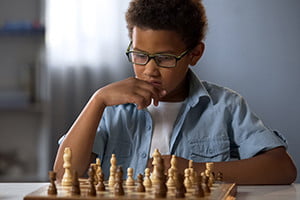
The game of chess is a battle fought on a board of 64 squares. One major deciding factor between winning a chess game and losing is the knowledge of Tactics and Strategy.
Tactics and strategy, while they might seem similar, are different. Tactics can be said to be a move or a series of moves that result either in the acquisition of material e.g gaining a material advantage, or result in a check or, in some cases, a checkmate.
On the other hand, Strategy is the overall plan for how a chess game will be played. This means tactics are short-term plans while a strategy is long-term.
Tactics usually occur after observing a series of moves made by an opponent which you can take advantage of and gain a winning position or even outrightly win the game.
Former World Chess Champion Max Euwe further explains the concept. In his words: “Strategy requires thought, tactics require observation.”
A player who wants to become a grandmaster must possess both qualities. But, first, you must understand the concept of tactics and strategy and be able to apply them in your games.
A few steps on how to improve your tactical and strategic skills are:
- Look for common tactical motifs like back-rank checkmates, forks, and skewers
- Study basic positional concepts in the middlegame
- Go through grandmaster games
- Study the entire board when playing
- Always look for sacrifices that can lead to checkmate or significant material advantage
- Solve chess tactic puzzles daily
Improve Your Calculation Skills
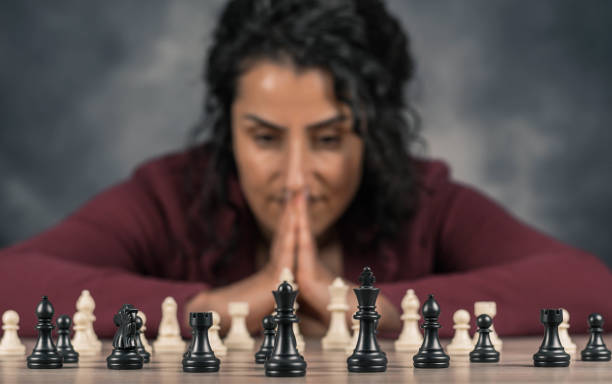
Chess is a tactical game that is played using a series of calculated moves. Therefore, every move in chess has to have a purpose and a motive behind it.
From the opening to the endgame, a player must utilize calculation skills in a game of chess. Tactics, winning moves, defensive ideas, and mating attacks are all achieved through calculation. Calculation in chess involves using the mind to analyze and predict the outcome of a particular move or move order.
You can improve your chess calculation skills by studying tactical chess positions. Go through at least three tactical chess positions daily, and you’ll notice your calculation skills improving.
Get Better in the Endgame
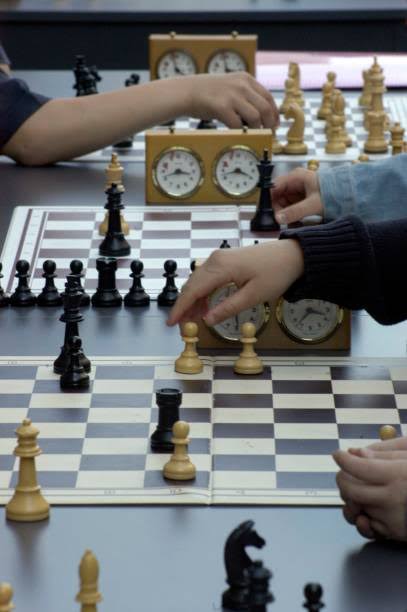
A chess game comprises three stages: the opening, middlegame, and endgame. The endgame is the final part of a chess game.
In the endgame, there are usually very few pieces on the board, and every move matters, a single mistake in the endgame can decide whether a player wins or loses the game. Knowing how to become a grandmaster requires an understanding of the endgame.
You can improve your endgame by studying chess books on the endgame and practicing endgame puzzles.
Former world champion Jose Raul Capablanca once said, “In order to improve your game, you must study the endgame before everything else, for whereas the endings can be studied and mastered by themselves, the middle game and the opening must be studied in relation to the endgame.”
Therefore, to learn how to think like a grandmaster does in the endgame, you have to study and get better at it.
Have a Fighting Attitude
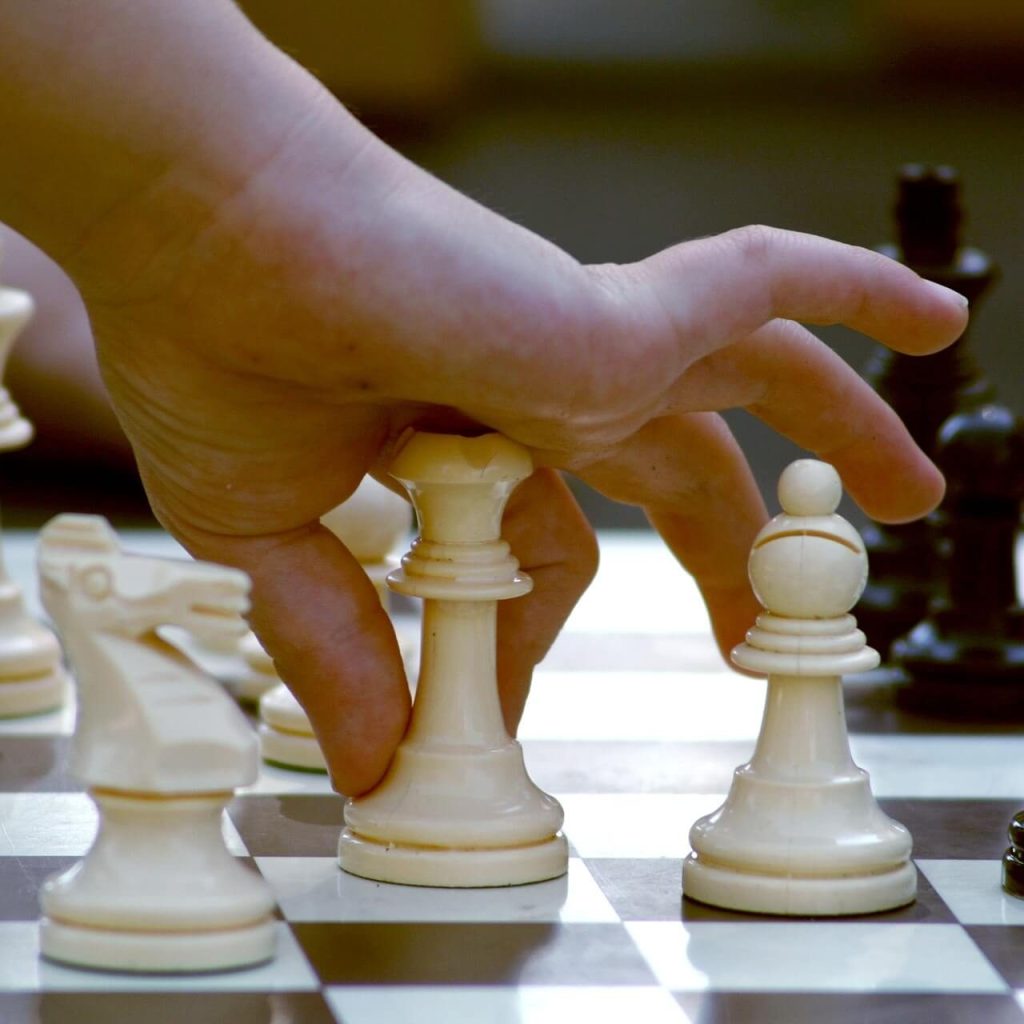
No one became a successful chess player by giving up. Chess itself is a war of the mind. To become a grandmaster, you must possess a fighting spirit that never gives up.
You will face many challenges on your journey and lose a lot of games, and you might even have a winning position and end up losing due to a silly mistake you made. However, to become a grandmaster, you must have a fighting attitude and an unbreakable spirit.
The Cuban chess legend Jose Raul Capablanca once said, “You may learn much more from a game you lose than from a game you win. You will have to lose hundreds of games before becoming a good player.”
Therefore, you shouldn’t give up on chess just because you’re experiencing a losing streak. Instead, try to learn from the lost games and keep fighting to improve.
Analyze Your Games
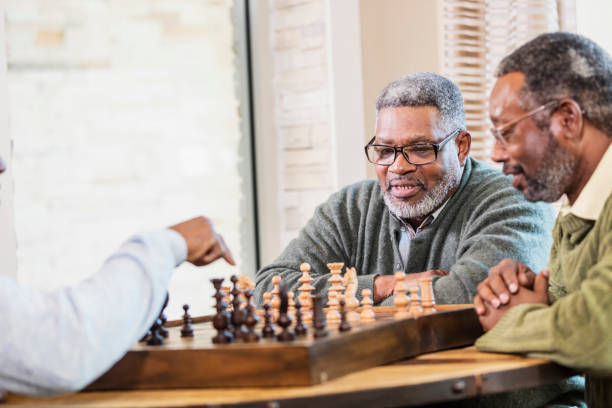
Most chess beginners play their games without analysis. Analyzing your games means going through a game you have already played to look for mistakes, inaccuracies, or blunders.
Every grandmaster analyzes their games and even games of other players to learn how to improve and play better chess. Game analysis helps you to spot your mistakes and avoid repeating them in subsequent games.
You can analyze your chess games with stronger chess players and chess coaches as they will help you point out your mistakes and show you how to play better. You can also analyze your games using chess engines like Stockfish.
An advantage of analysis is that it can help you learn how to beat a grandmaster. This is possible since, through analysis, you can spot mistakes made by a grandmaster in their previous games and take advantage of them if they repeat them.
Get a FIDE Membership
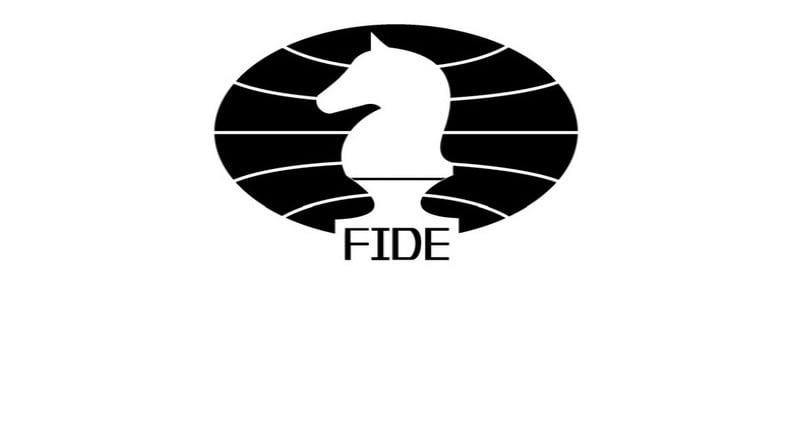
FIDE (Fédération Internationale des Écheсs) is the world’s governing chess body. Every professional chess player has to be registered with FIDE and have a FIDE membership. Therefore, you need to be registered with FIDE before becoming a grandmaster.
To get a FIDE Membership, you must participate in a FIDE-rated tournament, play at least 5 games against players who already have a FIDE rating, and score points against them. After that, you can search online for FIDE-rated tournaments around you.
Participate in Local and International Tournaments
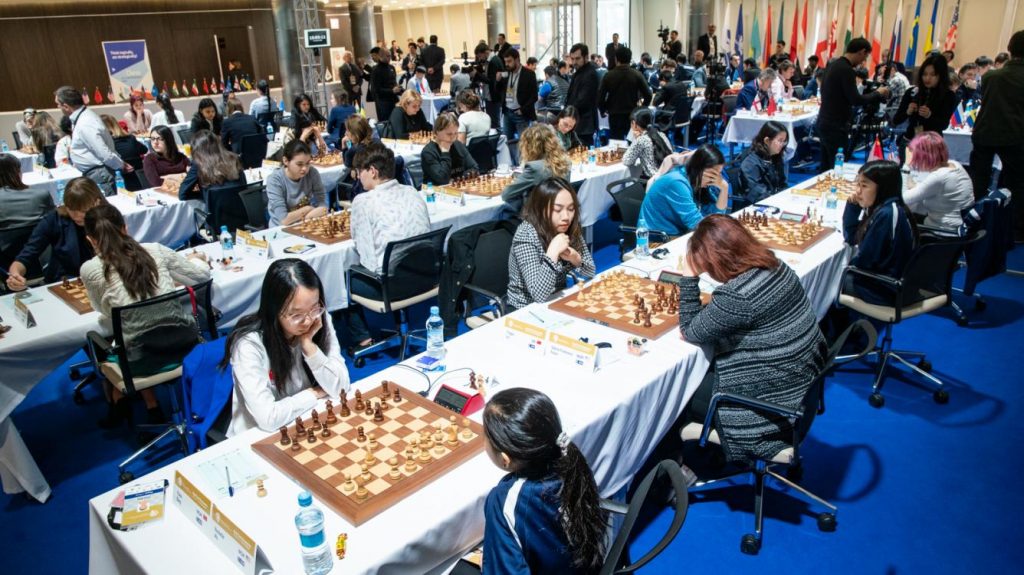
Grandmasters have a lot of tournament experience. Playing in tournaments is an excellent way of testing your skills against other chess players. Participating in tournaments is crucial to how to be a chess grandmaster. This is because to achieve the grandmaster title; you must obtain both a FIDE rating and three grandmaster Norms; these can only be acquired by playing in tournaments.
Chess Tournaments can be local or international. In local tournaments, you get to play against other chess players around you, while in international tournaments, you play against players from all over the world. You might even get the chance to play against a grandmaster.
Get 3 Norms and a 2500 FIDE Rating
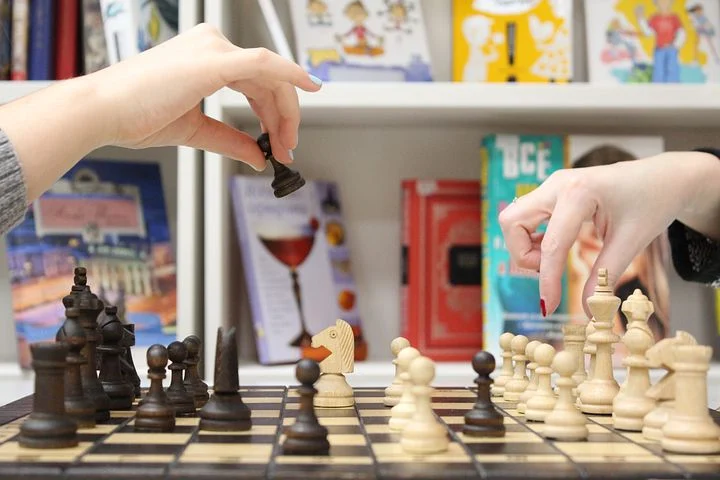
For a player to achieve the title of Grandmaster, they must have had an Elo rating of at least 2500 at any point in their chess career (however, they do not need to maintain this level to obtain or keep the Grandmaster title).
The FIDE Elo rating is a method of calculating a chess player’s strength and skill level. Its format is a sort of leaderboard. This means that the player with the highest Elo rating is the strongest chess player in the world. To get a FIDE rating, you have to be registered with the world chess governing body (FIDE). Then, you build your FIDE Elo rating by playing in FIDE-approved tournaments.
The rating requirement can be fulfilled even if the player starts a tournament rated below 2500 and then reaches or exceeds a 2500 rating during the tournament but eventually concludes the tournament with a rating lower than 2500.
Another requirement is the Grandmaster Norm. A norm is a high level of performance in a chess tournament. In many cases, a player needs to acquire 3 Grandmaster Norms to attain the Grandmaster title.
The requirements before a norm can be received according to the FIDE handbook include:
1. The player’s rating performance at the end of the tournament must be at least 2600.
2. At least 33% of the player’s opponents must be Grandmasters.
3. At least 50% of the player’s opponents must hold a FIDE title.
4. The player’s opponents must have an average rating of at least 2380.
5. The player’s opponents must come from at least 3 different chess federations, which can include the player’s federation.
6. A maximum of 60% of a player’s opponents can come from the player’s federation.
7. A maximum of 66% of a player’s opponents can come from a single federation.
A player can also get the title of grandmaster without fulfilling the above criteria if they win the Women’s World Championship, the World Junior Championship, or the World Senior Championship.
You may also want to see:
- How to Become a Woman Grandmaster
- How to Become a Candidate Master
- How to Become a National Master in Chess
- How to Become a FIDE Master
- How to Become an International Master
Frequently Asked Questions (FAQs)
How do you become a GM in chess?
To become a grandmaster, a player must achieve both of the following:
- An Elo rating of at least 2500 at any point in their career (although they need not maintain this level to obtain or keep the title)
- Three favourable results (called norms) from a total of at least 27 games in tournaments.
Can a normal person become a grandmaster in chess?
While there might be some debate on the topic, the answer is most likely no, becoming a grandmaster requires a certain level of talent and hard work. Unfortunately, while hard work can be achieved, talent is not something you can acquire.
Becoming a grandmaster requires a high level of IQ ( Intelligence Quotient) that only a few individuals possess.
How much does a chess grandmaster make?
The average earning for a chess Grandmaster is $3500/month. If however, the chess activity of the grandmaster is based only on coaching, then the average earning is $4800/month. Grandmasters who do not coach at all usually earn around $2500/month. Grandmasters also make a lot of money from tournaments. The prizes for big chess tournaments can reach millions.
Like every other profession, the chess profession has a hierarchy, and this directly influences the amount of money grandmasters earn. For example Magnus Carlsen earns a higher amount of money than players who just became grandmasters last year.
Also, you don’t have to be a grandmaster to earn money from chess. This piece provides 10 ways you can turn your chess skills into a money making venture.
How long does it take to become a chess grandmaster?
It takes around 8-10 years to achieve the requirements to become a chess grandmaster. But, of course, this depends on your focus, commitment, skill, and hard work level. There have been exceptional cases where a chess player has achieved the title relatively quickly.
Grandmaster Abhimanyu Mishra got the title at the age of 12 years, 4 months, and 25 days.
How hard is it to become a chess grandmaster?
Becoming a chess grandmaster requires a lot of hard work and dedication. It’s not an easy path and requires a lot of focus.
How many grandmasters are in this world?
According to a statistical study organized by FIDE last year, there are 1742 chess grandmasters in the world.1315 are active.
While the bulk of grandmasters can be found in Europe and Asia, famous grandmasters like Ian Nepominiatchi, Fabiano Caruana, and Alireza Firouzja are from these continents; other continents have grandmasters too.
Africa currently has 14 chess grandmasters. In the women’s category, there are also powerful grandmasters like Hou Yifan.
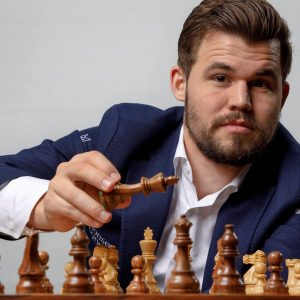
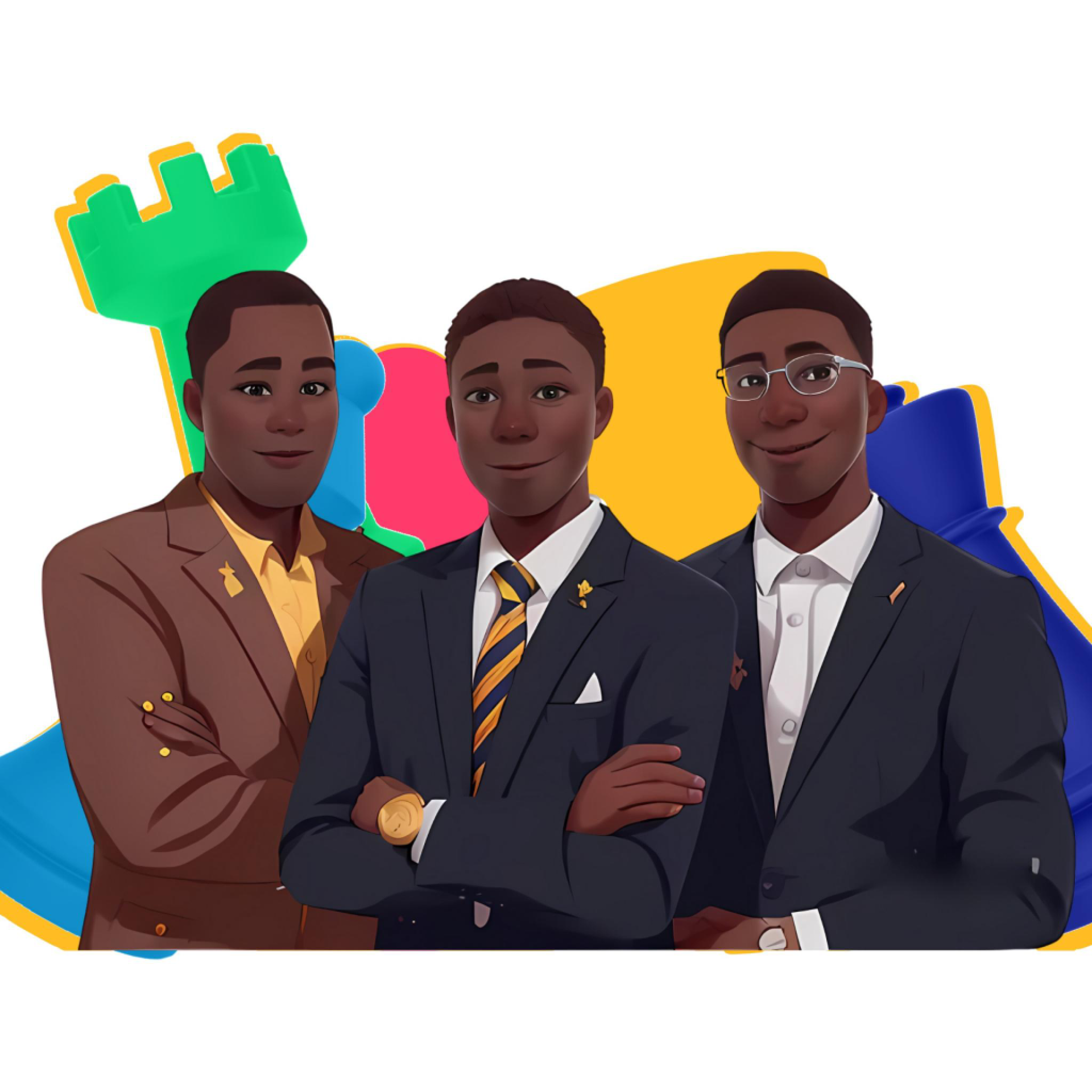


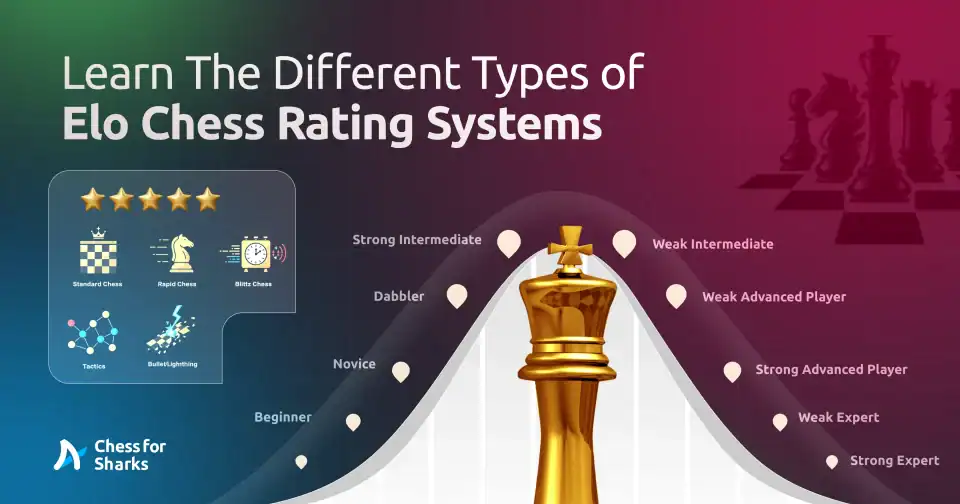

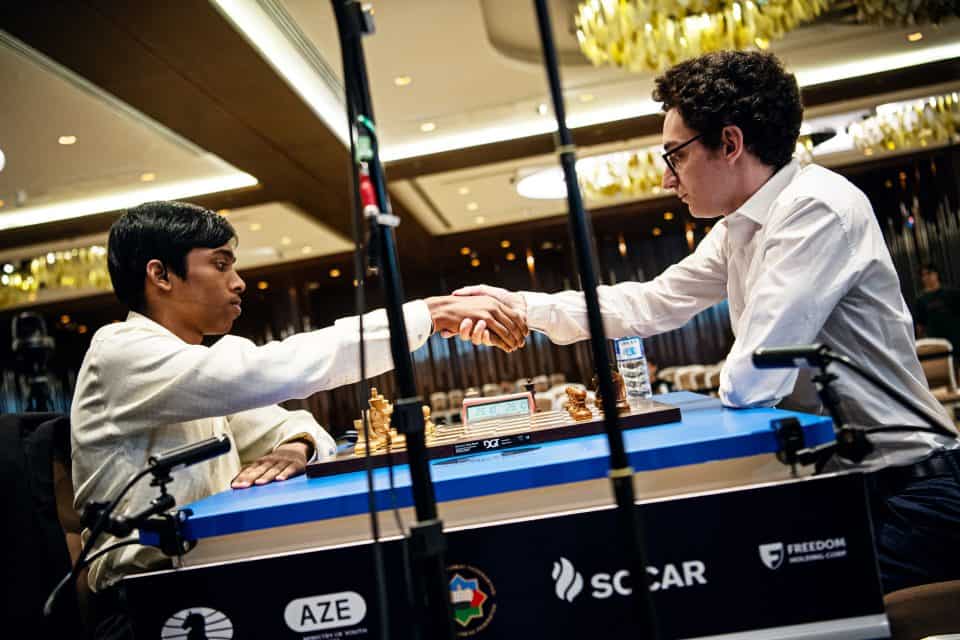
join the conversation